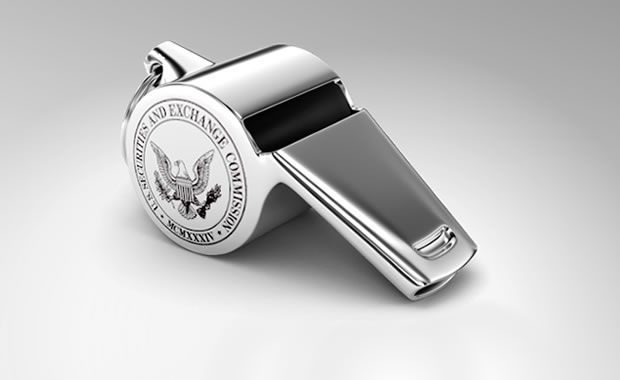I have commented on several occasions about whistleblowing, so my thoughts on the subject are already well documented. I am a strong advocate of whistleblowing as a means of policing rogue companies or the individuals they employ. I have described whistleblowing as an important item in the regulatory toolbox.
When I did so, I was taken to task by several commentators who thought that whistleblowing was fraught with danger, that malicious accusations by employees with a grudge could be made with a view to causing mischief. I replied by pointing out that any malicious allegation would be without foundation and thereby weeded out quite quickly by the regulatory body concerned. After all, if the allegation is made absent evidence, there is nothing to worry about.
Yes, being targeted spuriously would be annoying, even seriously disconcerting for some. But we need to have an effective whistleblower program to hang like a Sword of Damocles over those who think they can act dishonestly and with impunity. The U.S. system of financially rewarding whistleblowers from fines which are levied encourages people to come forward, especially when some of the rewards can run into millions of dollars.
There’s no point in a company complaining about a whistleblower being incentivized if they have acted dishonestly in order to win a contract, increase profits, or protect themselves from incurring fees. Justice needs to be served.
However, there are many who balk at the thought of financial incentives for whistleblowers. They contend that if a person wants to do the right thing, then why do they need to receive an award for doing so?
Let’s be honest, pinpointing a source is likely to be straightforward for most companies. Identifying the whistleblower will be most companies’ first thought in order that they can assess vulnerability to the accusation. Even with the protection afforded by law, the whistleblower understands that they are embarking on a professional, career-ending, suicide mission. That is why a significant financial reward is needed.
This takes us to the UK’s Financial Conduct Authority (FCA) and the Bank of England’s Prudential Regulation Authority (PRA) joint report on whistleblowing, based and formulated upon a visit to the United States by FCA representatives to assess the feasibility of setting up a similar scheme in the UK. The 2014 report has recently been attacked by the U.S.’s National Whistleblower Center (NWC).
From the outset it is important to note that the UK’s austerity measures have impacted negatively on law enforcement and regulation in the UK. The thought of handing over large wedges of cash to whistleblowers will not go down well. In a nutshell, the UK report concludes that there is little evidence that rewarding whistleblowers will increase the number of “quality disclosures” received; and that in the United States only a fraction of whistleblowers receive a reward, with the vast majority receiving nothing.
The UK report claims that if they follow the U.S.’s lead, then they will see an increase in malicious reporting and entrapment. The fact that the FCA and the PRA believe that this will be an issue says more about their investigative abilities and confidence to achieve a result. Surely a malicious report will be weak and light on evidence? And any entrapment will be similarly obvious.
Each case can be dealt with on its merits: so if a firm is found to have been entrapped, it can perhaps expect suitable words of advice rather than feeling the full weight of the regulator. What is important is that the whistleblower involved can not only expect zero reward for their efforts, but will also find themselves on the wrong end of a criminal investigation for seeking to mislead the authorities and perhaps for perverting the course of justice.
Unsurprisingly, as stated, the U.S.’s National Whistleblower Center or NWC has felt slighted by the UK document. It has reacted by compiling its own response to the negativity contained within the UK report. The NWC document seeks to tease out what it perceives to be inaccuracies within the UK paper. The NWC cites multiple quotes made by high-ranking politicians and regulators who endorse whistleblowing programs. It is an excellent read.
Indeed there is a graph depicting the increase in sanctions from 1987 to 2017. It effectively shows the number of whistleblowing disclosures and sanctions have risen sharply and consistently since inception. In addition, a simple pie chart reveals that 92 percent of funds recovered for the U.S. Treasury under the False Claims Act have their derivation in whistleblowers coming forward.
If the NWC claims are accurate, then they fully vindicate the whistleblowing program.
I could go on. But suffice to say that most impartial readers with a knowledge of the regulatory world will likely conclude that the National Whistleblower Center’s report wins on points over the UK’s criticism of whistleblowing reward programs.
My thoughts are clear. All countries need to set up whistleblower protection and reward schemes, that not only protect the source but will ultimately see them justifiably remunerated where an investigation concludes that there has been wrongdoing, and where the organization is on the receiving end of significant sanctions.
____
Martin Kenney, pictured above, is Managing Partner of Martin Kenney & Co., Solicitors, a specialist investigative and asset recovery practice based in the BVI and focused on multi-jurisdictional fraud and grand corruption cases www.martinkenney.com |@MKSolicitors. In 2014 he was the recipient of the ACFE’s highest honor: the Cressey Award for life-time achievement in the detection and deterrence of fraud. He was selected as one of the Top Thought Leaders of the Legal Profession in 2018 by Who’s Who Legal International and as the number one offshore lawyer for asset recovery in 2017.

